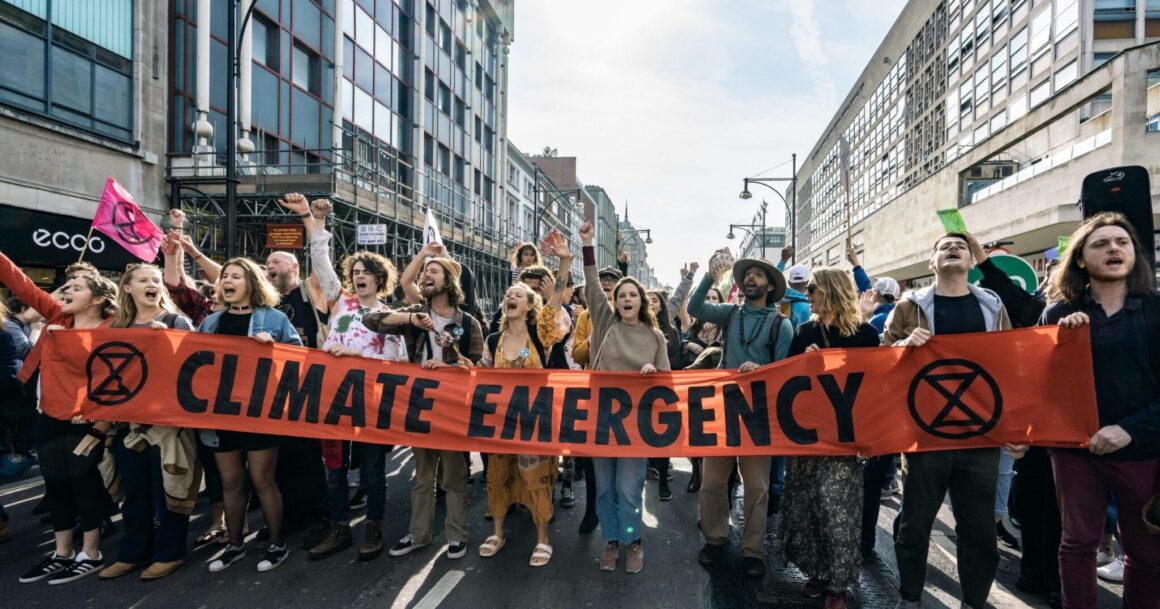

By Jeremy Dewar
JULY 2021 was the hottest month ever recorded. Unlike the world records set in the Olympics, however, this one will not be celebrated.
Successive heatwaves struck along North America’s west coast, causing forest fires, devastation and deaths. Siberia and regions inside the Arctic Circle, far from the equator, also suffered forest fires.
In Germany, 184 people died when nearly two month’s average rain fell in 48 hours, before the rain struck in Belgium (34 dead) and Holland.
In August, heatwaves have migrated across southern Europe. Turkey and Greece have seen horrendous devastation, killing 25 in Kastamonu and burning 50,000 hectares of forest in Evia. Sicily recorded the highest ever temperature in Europe at 48.8C.
IPCC report
The Intergovernmental Panel on Climate Change (IPCC) published its sixth comprehensive assessment report last month, in preparation for the COP26 conference being held in Glasgow in October. The report says it is virtually certain that human activity has been the main factor driving global heating since at least 1850 – and that the growth in our effect on the climate is exponential.
In short, the birth of capitalism and its later development are entwined with the environmental crisis. Only by breaking capitalism’s social relations of production can we stop this catastrophe.
Climate change is caused by an increase in greenhouse gasses in the atmosphere, primarily methane, carbon dioxide (CO2) and nitrous oxide. Human emissions of these have increased over the last four decades, while the ability to suck them out of the atmosphere, primarily the earth’s forests and oceans, has remained static. The levels of CO2 are higher than at any time in the past 2 million years.
This will mean more frequent, longer lasting, more extreme heatwaves and floods. The land surface and the arctic caps will heat up and the coastal regions and inland areas will suffer more than most. Climate refugees will inevitably multiply.
But the report, vetted by 194 governments, completely fails to mention fossil fuels. Without rapidly replacing these with renewable energy technologies, the planet will soon be pushed beyond the brink.
Tories
Boris Johnson and COP26 President Alok Sharma have promised Britain will lead the way with ‘hugely ambitious’ policies, but this is yet to be seen. Plans to build a new coal mine in Cumbria and an oil field in the Shetlands are still in progress.
Division inside the Tory Party is the alleged reason behind the delay in publishing the government’s net zero strategy. Johnson is a late convert from climate scepticism, and Chancellor Rishi Sunak has blocked most measures in his determination to keep the costs of climate cooling to below 0.1 per cent of GDP per year.
Johnson’s ‘10 Point Plan’ is vague. It is ludicrously underfunded at £12 billion, relying on the private sector to build wind farms and electric cars. It doesn’t mention fossil fuel energy and instead includes technologies that are heat producing (nuclear) or unproven (carbon capture).
Keir Starmer has called out Johnson as ‘missing in action‘, but the only action he has taken is to abandon the Green New Deal passed by Labour conference in 2019. Gone are the policies of zero carbon by 2030, nationalisation of energy, rail, communications and water and the total phasing out of fossil fuels.
The unions have mostly been worse. Unite supported Heathrow’s third runway and the GMB is even against the mass replacement of gas boilers by hydrogen models.
What can we do?
We need to campaign between now and the COP26 to build a movement to stop climate catastrophe. Socialists, trade unionists, Labour Party members and environmentalists need to take direct action, up to and including strikes, and meet to form a plan.
workers power proposes:
This can only be achieved by a mass movement from below. Crucial to this will be trade unions both here and globally. They are the ones who have the power to stop big business from destroying the planet—by stopping work—and workers, along with the rural poor, will otherwise increasingly take the brunt of climate heating.